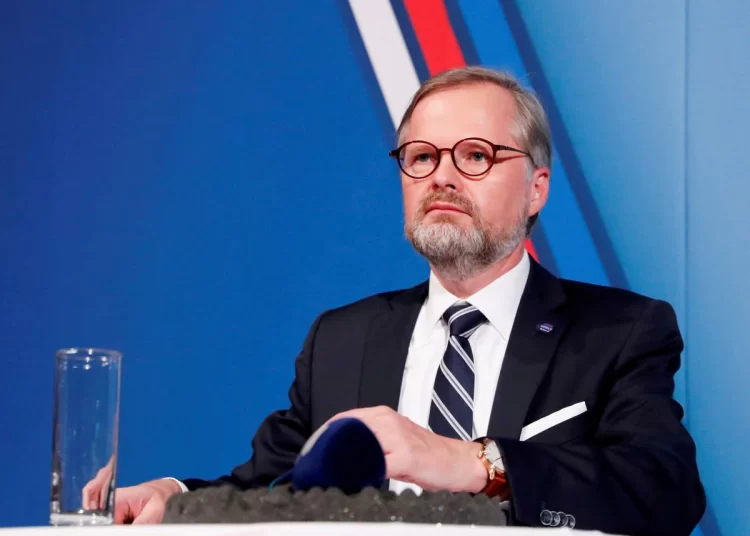PRAGUE – Czech Prime Minister Petr Fiala’s new centre-right government took office on Friday facing soaring inflation and energy costs, record budget deficits and the dragging Covid-19 pandemic.
The 57-year-old former university professor leads a coalition of five parties spanning the political spectrum from his fiscally conservative Civic Democrats to the more liberal Pirates Party which is entering government for the first time, Reuters reported.
The coalition takes over at a time of soaring costs for households and a new wave of coronavirus infections which are straining hospitals. It also inherits an agenda that includes a potential tender for new nuclear power plant units costing billions of euros.
The new government secured 108 seats in the 200-member lower house in an October election, giving it a strong majority.
But it faces fierce opposition from outgoing prime minister Andrej Babis’s ANO party, which is the biggest single group in parliament, and the far-right SPD.
The coalition is likely to face internal disputes.
A plan to cut spending in the 2022 budget by 80 billion crowns ($3.58 billion) presents the first major test: the parties must agree on saving measures and navigate a budget in which mandatory spending items have jumped in recent years due to fast rises in pensions and public wages.
Fiala avoided one possible clash this week by agreeing the government’s appointment with Czech President Milos Zeman.
He had opposed the nomination of the Pirate party’s Jan Lipavsky, 36, to be foreign minister.
Zeman had reservations over Lipavsky’s views towards Israel and his cooler stance towards the central European alliance of Visegrad which counts Hungary, Poland and Slovakia as members.
The coalition programme said the country would continue developing strategic partnership with Israel and that cooperation in Visegrad, which has been united in a hardline stance against illegal migration in the European Union, would be key in relations.
The coalition has also stressed cooperation with “democracies” in the world, such as Taiwan or Japan in Asia, and wants to revise relations with Russia and China, two countries with which Zeman has sought deeper ties in the past.
The incoming government has also pledged to raise defence spending to the NATO alliance’s recommendation of 2 per cent of GDP.






Discussion about this post